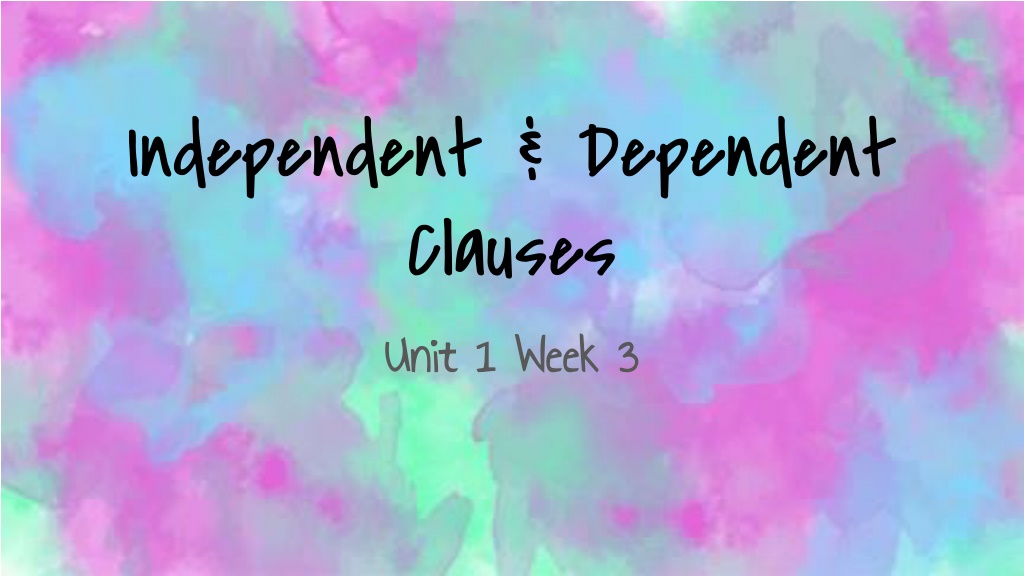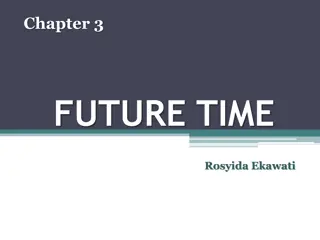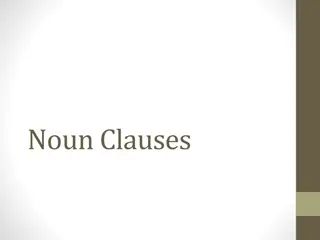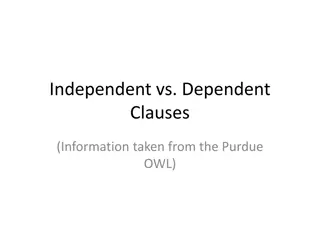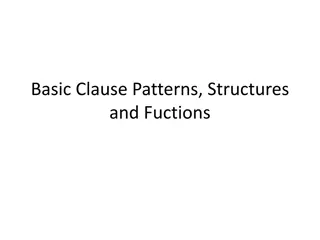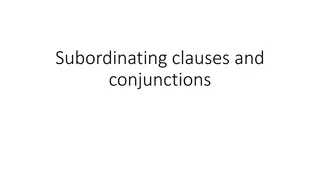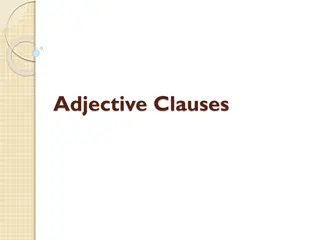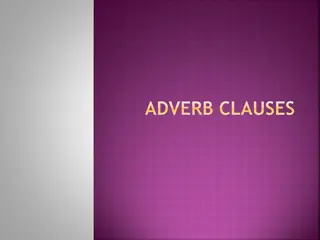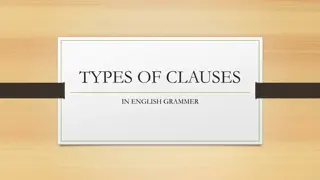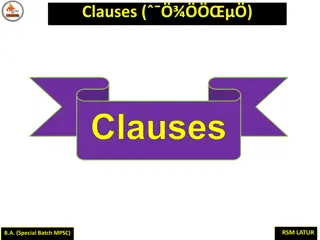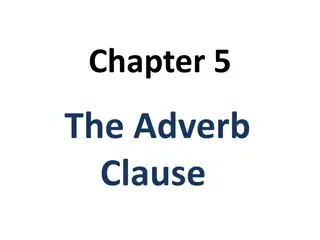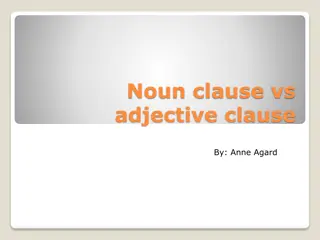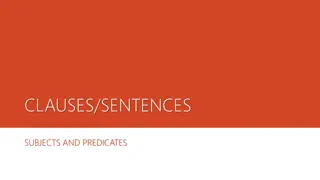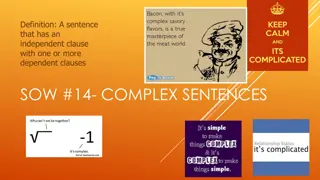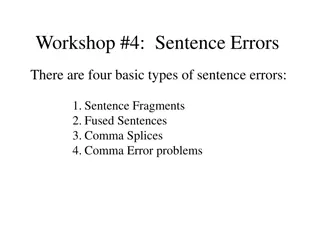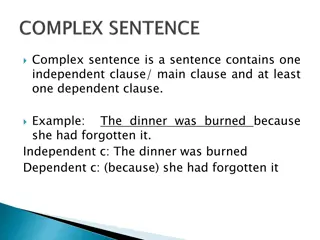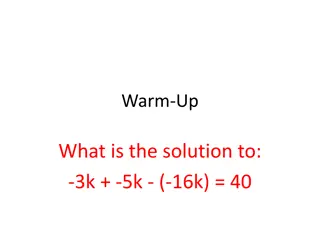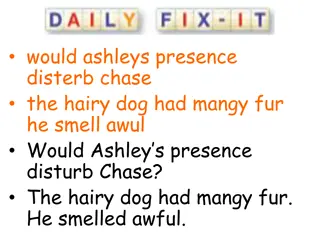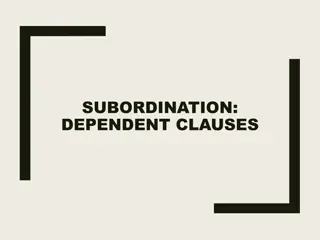Understanding Independent and Dependent Clauses
An independent clause contains a subject and a verb, forming a complete sentence on its own, while a dependent clause also has a subject and a verb but cannot stand alone. Dependent clauses rely on independent clauses to form complete sentences and are introduced by subordinating conjunctions. When combined, they create complex sentences, adding depth and complexity to your writing.
Download Presentation

Please find below an Image/Link to download the presentation.
The content on the website is provided AS IS for your information and personal use only. It may not be sold, licensed, or shared on other websites without obtaining consent from the author. Download presentation by click this link. If you encounter any issues during the download, it is possible that the publisher has removed the file from their server.
E N D
Presentation Transcript
Independent & Dependent Clauses Unit 1 Week 3 Unit 1 Week 3
Independent Clause An independent clause has a subject and a verb and An independent clause has a subject and a verb and can stand alone a complete sentence. a complete sentence. It can also be called a main clause. It can also be called a main clause. can stand alone as as Ex. I missed the bus. Ex. I missed the bus. Subject Subject: I : I Predicate/verb Predicate/verb: missed : missed
Dependent Clause A dependent clause has a subject and a verb, but A dependent clause has a subject and a verb, but cannot stand alone complete sentence. complete sentence. It can also be called a subordinate clause. It can also be called a subordinate clause. Dependent clauses contain Dependent clauses contain subordinating conjunctions subordinating conjunctions such as: when, if, because, although, since, before, etc. because, although, since, before, etc. Dependent clauses rely/depend on independent clauses to help make a sentence Dependent clauses rely/depend on independent clauses to help make a sentence complete. complete. If the dependent clause comes first in a sentence, it is always followed by a If the dependent clause comes first in a sentence, it is always followed by a comma and a independent clause. comma and a independent clause. cannot stand alone as a as a such as: when, if,
Example... Because I woke up late (not a sentence) Because I woke up late (not a sentence) If we add an independent clause to this, it will make it a complete If we add an independent clause to this, it will make it a complete sentence. sentence. Because I woke up late Because I woke up late, , I missed the bus. I missed the bus I missed the bus because I woke up late. because I woke up late. I missed the bus. (comma after the DC) (comma after the DC) (no comma needed) (no comma needed) *Sentences that contain both an independent clause and a dependent clause *Sentences that contain both an independent clause and a dependent clause are called complex sentences. are called complex sentences.
